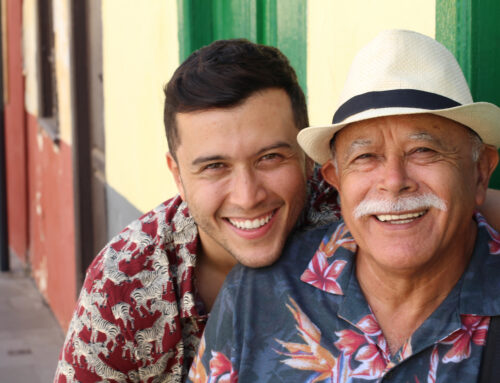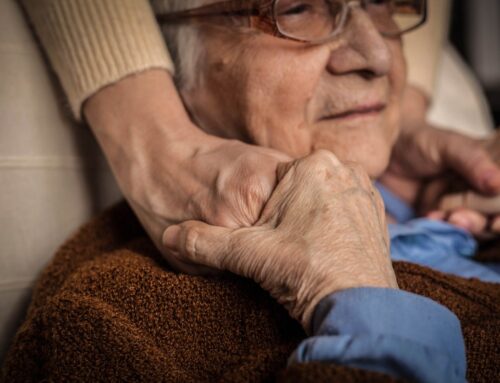November is National Hospice and Palliative Care Month. Each year in November, hospices and palliative care organizations across the nation raise awareness about hospice and palliative care’s ability to improve quality of life for those living with advanced and life-limiting illness.
Roze Room joins these efforts by educating our communities about the positive impact of hospice and palliative care. This month, we are dedicating our blog to increasing awareness of the benefits of hospice by answering some commonly asked questions. Here are 5 FAQs About Hospice Care.
1. Q: How Do I Know It May Be Time for Hospice Care?
A: It is common for family members to worry that they may be giving up on their loved one by considering hospice care. But hospice is not about giving up. It is about living the way you want and focusing on comfort and quality when a cure is no longer likely. Hospice often becomes a choice when you or a loved one are seeking relief from frequent emergency room visits or are tired of challenging treatments that have no positive impact on life expectancy or quality. Hospice makes sense when your focus turns from seeking a cure to seeking the best possible days for the time that remains. It is important to realize hospice is not just for the last days of life. In fact, hospice works best when chosen early, allowing you and your family to benefit from the extra layer of care hospice brings.
So how do you know when it is time for hospice? Here are some examples of when your loved one would benefit from hospice care.
• Are you calling your loved one’s physician more often?
• Does your loved one seem more stressed, anxious or depressed?
• Are they sleeping more?
• Are they spending more time in their favorite chair?
• Have you noticed that they are losing weight?
• Are their symptoms becoming more difficult to control?
• Are you, as their caregiver, feeling more overwhelmed?
2. Q: Who Pays for Hospice Care?
A: Medicare, Medi-Cal and private insurance plans pay for hospice care. Medicare and Medi-Cal cover hospice services fully, so there is no out-of-pocket cost to the patient or family. Private health insurance plans and health maintenance organizations also offer hospice care as a benefit and usually cover a substantial portion of hospice services. Contact us or your private insurance provider to learn more about your hospice coverage.
3. Q: Will I Have to Give Up My Doctor?
A: Patients continue to see their regular doctor. In fact, our team works directly with your physician to create a plan of care focused on your unique needs. Your doctor remains an active partner in your care. We communicate with your physician regularly to update them on how you are doing and address any changing needs.
4. Q: Can I Discontinue Hospice Care?
A: Yes. A patient can discontinue hospice services at any time. If a new treatment becomes available or you simply decide hospice is not for you, you can transition off of hospice care for any reason. You might be surprised to learn that periodically do improve medically and no longer need the large breadth of services and extra layer of support hospice provides. It’s not surprising that many patients improve on hospice care. Hospice provides expert, consistent and personal medical care. Hospice teams are highly trained in pain management and symptom control. In addition, hospice provides whole-person support, including emotional and spiritual support. All this works together to improve quality of life, which can lead to a patient improving and no longer needing hospice care.
5. Q: Is Hospice Care Only for Cancer Patients or the Elderly?
A: It is a common myth that hospice care is only for cancer patients or the elderly. Hospice is available to anyone facing a life-limiting illness regardless of age or disease. Typically, a patient is referred to hospice when the patient has chosen to focus on quality of life rather than continuing to undergo aggressive treatments for an illness no longer likely to be cured. In addition to those coping with cancer, hospice is also available for those coping with lung, heart, kidney or liver disease, end-stage neurological disorders like Alzheimer’s and other dementias, HIV, ALS, Parkinson’s and numerous other conditions.
During National Hospice and Palliative Care Month, Roze Room hopes to bring light to all the advantages that hospice and palliative care brings to those living with serious illness. Ultimately, hospice is a unique program that provides physical, emotional and spiritual care to improve quality of life so those with serious illnesses can be empowered to live as fully as possible.
If you have questions, we are here to help. If you have already decided that Roze Room can help you and your family, then getting care is easy. Learn more about our care at https://rozeroom.org/how-we-help/





